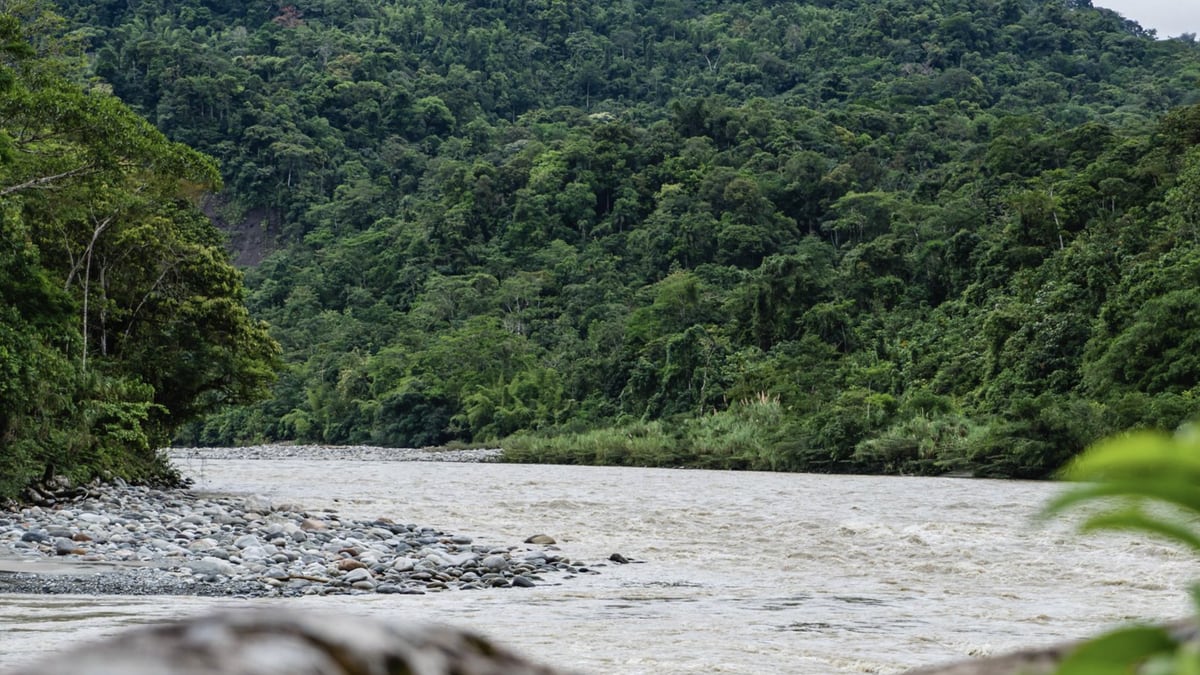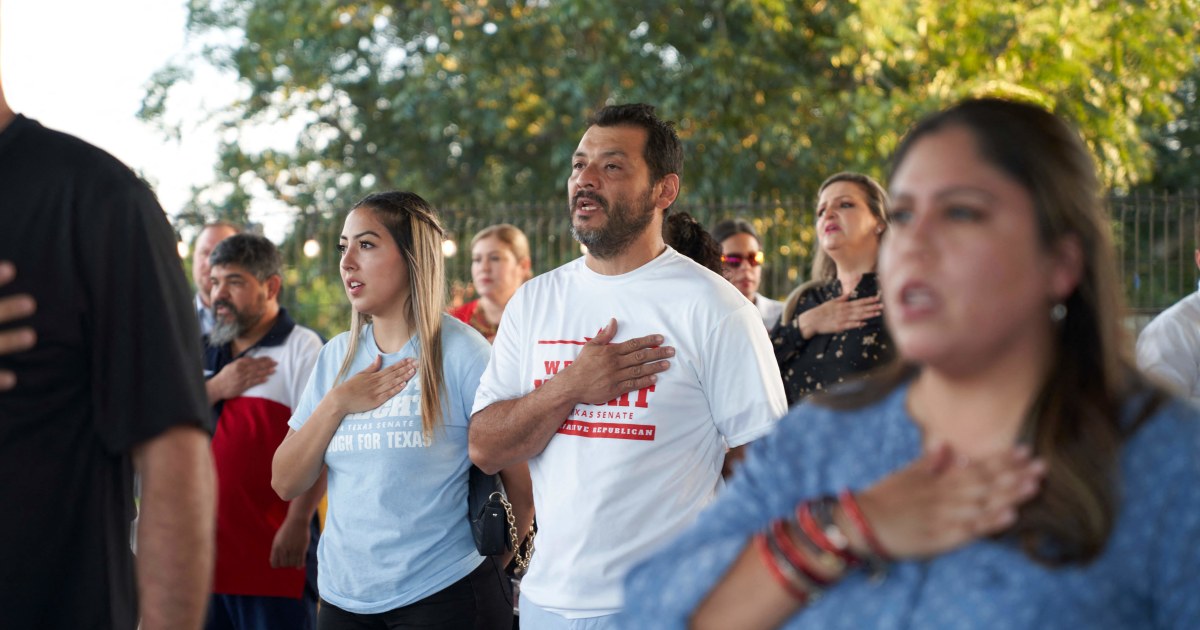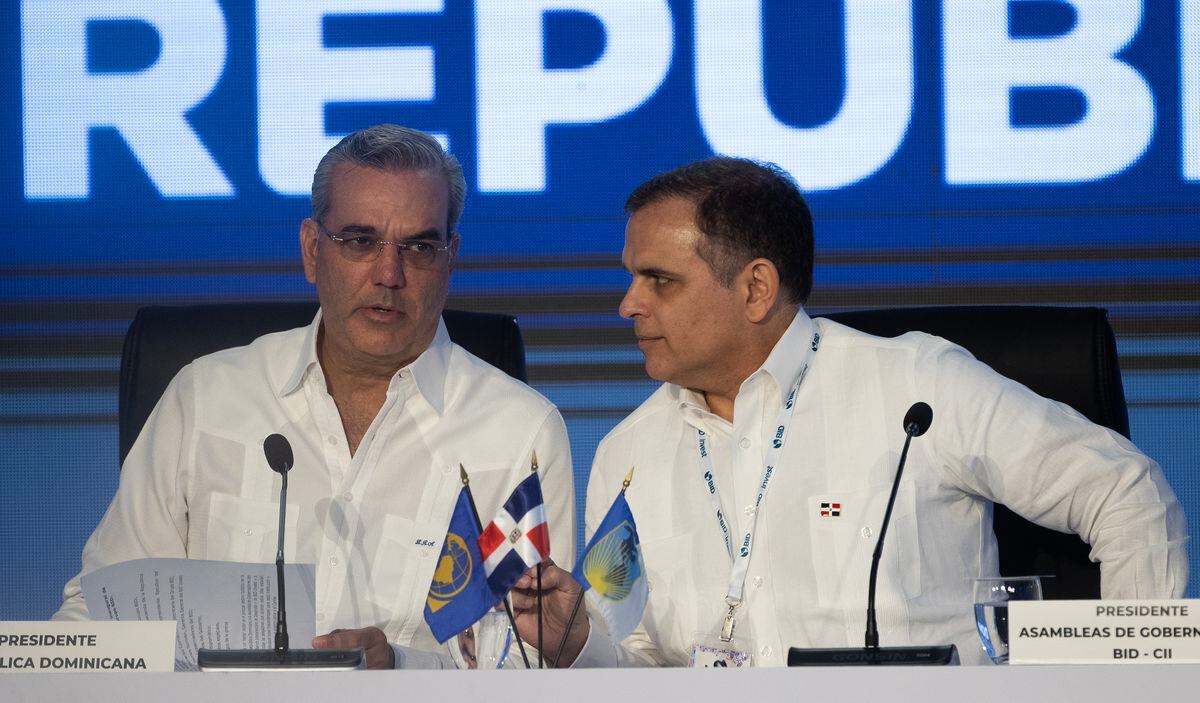Rachel Marin
Latin America is going through a time of special gravity.
Its economy is on the ropes.
Its institutions, weakened and discredited.
And their societies, defenseless against a virus that is causing severe havoc.
The massive protests that have been unleashing in a long and varied list of countries show the growing public frustration, which must be addressed without further delay.
Despite having just over 8% of the world's population, Latin America has more than 30% of the fatalities confirmed by covid-19.
With some exceptions, vaccination proceeds at a slow pace: for example, in Peru (one of the countries with the worst mortality figures from covid-19 in the world), the percentage of the population vaccinated with at least one dose is as high as only around 20%.
Last year, the region's economy fell 6.3%, but the truth is that it had been stagnating for five years and waning dynamism.
To this is added that many Latin American countries are among the most unequal on the planet, which represents a breeding ground for the virus and political instability.
Fatalistic stories about Latin America are counterproductive, since they mask the heterogeneity that characterizes their societies and institutional frameworks, and denies them a capacity for action that they undoubtedly possess. However, the historical and structural factors that explain the late development of the region as a whole cannot be ignored. Neither is its marked tendency to volatility, which has been more than evident in the last 30 years.
The democratic boom that Latin America experienced in the early 1990s, together with the increase in the prices of raw materials a decade later, led to an increase in GDP and led to a thickening of the middle classes. But the end of the
boom
in raw materials in the second decade of this century ruined a good part of the economic advances made, which had a negative impact on the social and political climate.
The middle classes - fundamental vectors of growth and social balances - have lost their confidence in continuing to progress and even fear a return to poverty, which has eroded their support for democratic institutions. The ground has been cleared for populist leaders lacking in government experience to flourish who, from both the right and the left, have lashed out at civil liberties and the rule of law. This worrying drift has diminished Latin America's prominence in global governance structures.
However, Latin America's food production, as well as its abundant mineral and energy resources, attracts the permanent attention of the great world powers. In particular, the region has seen a rebound in trade, investment and financial cooperation from China. Although it is not a novel phenomenon (the
boom
in raw materials was already due to a large extent to growing Chinese demand), Latin America is today in a more exposed and dependent situation, accentuated by the pandemic.
It is clear that Latin America's problems must be addressed, above all, by its own leaders. And the most pressing task - beyond the fight against covid-19 - is to promote a new social contract. This should be aimed at mitigating inequality and improving access to health, education and other pillars of the welfare state. The changes must be deep enough to re-dignify politics, thus awakening a renewed adherence to democracy.
These rulers, however, cannot undertake this task alone. A more fluid collaboration with the private sector and civil society would make it possible to maximize the opportunities offered by digital transformation and manage its impact on labor markets with greater guarantees. On the other hand, the Latin American countries would do well to consolidate and invigorate a regional integration that has not finished taking shape. The new frontiers of technology, communications, and education can help to strengthen ties at the inter-American level, primarily with regard to trade (as claimed by the vast majority of the citizens of the region).
From a global point of view, it should be emphasized that Latin America is a key player in political and economic balances and, especially, in the fight against climate change. It is estimated that Latin America contains 40% of the biodiversity, 30% of the fresh water reserves and 25% of the forest mass on Earth. These and many other factors should make it more central to multilateral action.
International organizations have reacted to the COVID-19 crisis by putting more funding on the table, but the effort is still not enough for developing countries, which need more flexible access to long-term resources and low interest rates. . Some initiatives demanded by these countries - among them, Latin American ones - emphasize the creation of liquidity to alleviate the social impacts of the pandemic and help those companies whose survival is being threatened.
Likewise, Latin America and its traditional partners would benefit from devising new forms of cooperation. The United States' potential to help neighboring countries, such as those in Central America and the Caribbean, is particularly remarkable. The links between Latin America and Europe, the result of migrations, as well as common values and traditions, are also noteworthy. But Europe must engage more with Latin America, and not only because of a question of cultural affinity: it is a geostrategic imperative that arises from a convergence of interests, such as curbing the pandemic, mitigating climate change, promoting economic prosperity and complementing the influence of other powers. The trade agreement that is being developed between the European Union and Mercosur would represent a tangible and very significant advance.
In line with these reflections, it is worth remembering the words that Gabriel García Márquez pronounced when accepting the Nobel Prize for Literature in 1982: “Europeans with a clarifying spirit, those who also fight here for a more humane and just great homeland, could better help us if they would thoroughly review their way of seeing us. Solidarity with our dreams will not make us feel less alone, as long as it does not materialize with acts of legitimate support for the peoples who assume the illusion of having a life of their own in the division of the world ”. The Colombian writer titled his speech La soledad de América Latina.
In these times of shared hardships and afflictions — though not equally distributed — García Márquez's wise words challenge us all, Europeans and non-Europeans.
The current pandemic has to record two ideas in our memory: no one is safe from global threats, and no one should be left alone in the face of them.
Javier Solana
is a
distinguished fellow
at the Brookings Institution and president of the EsadeGeo-Center for Global Economy and Geopolitics.
Enrique V. Iglesias
is former Secretary General of the Ibero-American General Secretariat.

/cloudfront-eu-central-1.images.arcpublishing.com/prisa/TZRUDXFEVFE47KWAZFXJ57GHPA.jpg)



/cloudfront-eu-central-1.images.arcpublishing.com/prisa/2BJPLFOPENCKDMK6PPADXUU37E.jpg)


/cloudfront-eu-central-1.images.arcpublishing.com/prisa/ETGSMPG4ZNFJFFLVSLKB3DWPSQ.jpg)



/cloudfront-eu-central-1.images.arcpublishing.com/prisa/KMEYMJKESBAZBE4MRBAM4TGHIQ.jpg)


